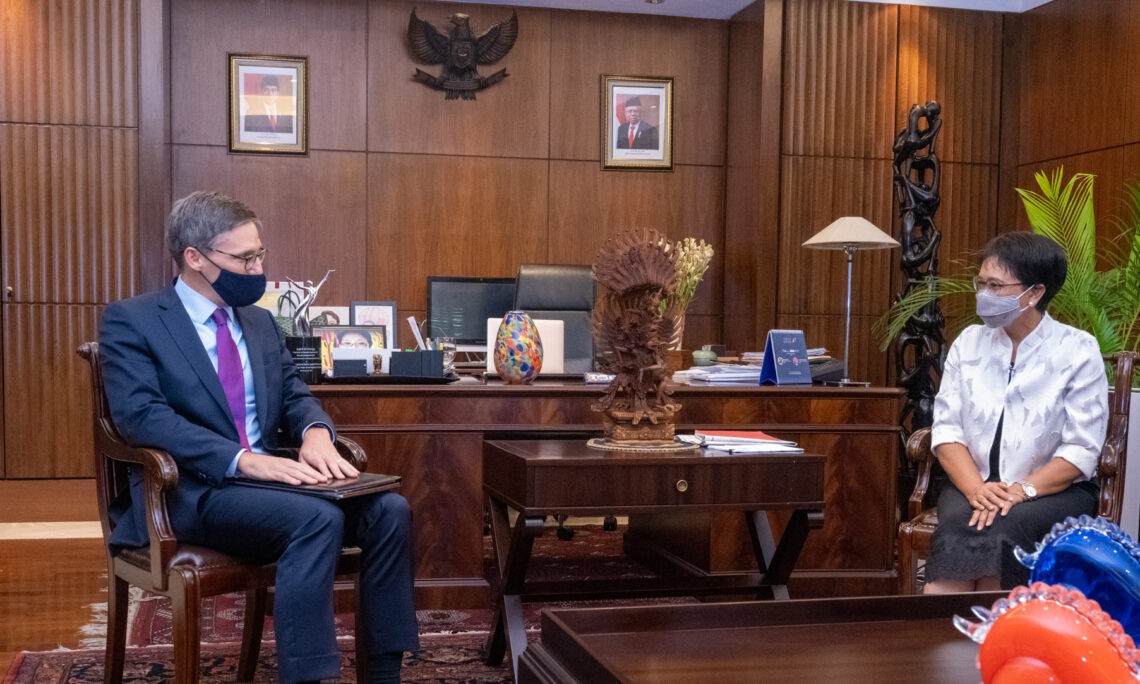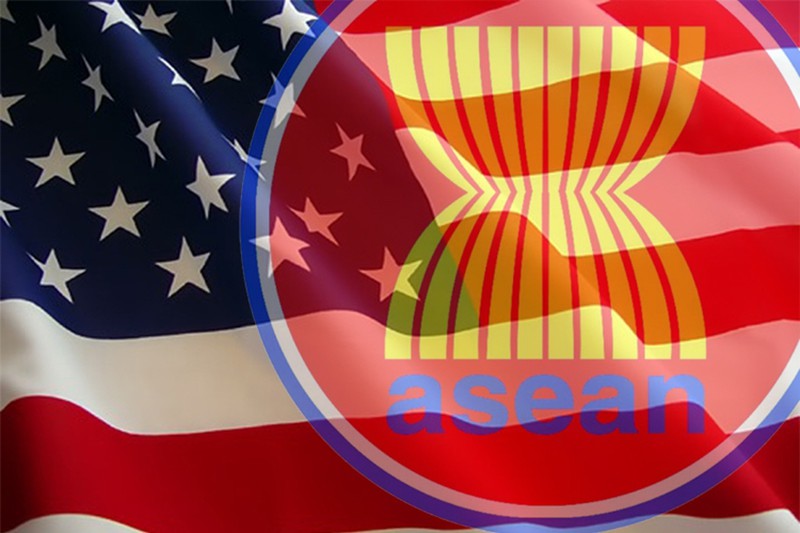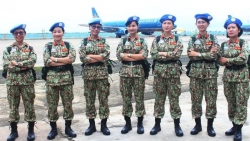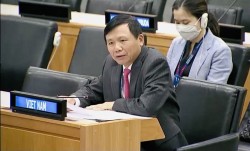
The U.S. is committed to strengthen ASEAN’s central role
Latest
 |
| Counselor of the U.S. Department of State Derek Chollet meets with Indonesian Foreign Minister Retno Marsudi on October 21, 2021. (Photo: US Embassy in Indonesia) |
Could you share the results of your trip to Southeast Asia from October 17-22, 2021?
Thanks everyone for being on the call this afternoon and greetings from Jakarta. Derek Chollet here, and I’m leading an interagency delegation to the region this week. We spent Tuesday of this week in Bangkok, yesterday in Singapore, and today in Jakarta.
This trip is the latest example in a series of senior-level engagements by the Biden administration in Southeast Asia, including Secretary of State Blinken’s extensive engagement with an ASEAN ministerial event this year – he’s participated in three already this year – as well as a series of high-level visits to Washington and also out here in the region, including of course the Vice President’s trip to Southeast Asia as well as Secretary of Defense Austin’s trip here in this part of the world as well as the U.S. Ambassador to the United Nations Linda Thomas-Greenfield and my colleague, the Deputy Secretary of State Wendy Sherman.
These engagements really underscore the importance that we place on the region and a level of commitment to working with our allies and partners. Over the course of the last three days, we’ve met with leaders in Thailand, Singapore, and Indonesia. I’ve had the chance to meet with the foreign ministers of all three countries, and we’ve discussed ways we can work with ASEAN and our allies and partners in this region. We’ve worked together on a full range of issues. That includes working closely to tackle the pandemic and get robust economic recovery, combat climate change, and commit to the rules-based international order from which we all benefit. And we are encouraged by the progress we’ve already made and what we have on deck.
Our trip gave me hope that we can make some progress, and we have a lot of work to do and a very long road ahead. Working with our partners in ASEAN and the region must be at the center of our strategy.
We reaffirm our commitment to strengthen ASEAN centrality and strategic partnerships with ASEAN and its members.
 |
| The US supports the central role of ASEAN. (Photo:Getty) |
The international public opinion is still quite controversial as regards new trilateral defense partnership between the United States, Australia and the United Kingdom, called AUKUS. Could you tell us more about the mission of AUKUS?
On AUKUS, the United Statesbelieves a free and open Indo-Pacific region with freedom of navigation through secure and open shipping lanes is absolutely critical to the security and prosperity of everyone in the region. And it seems to us that the three ocean nation’s dependence on seaborne international trade, Australia as one of those nations needs cutting-edge naval capabilities and for its own defense as well as to contribute for a durable strategic balance in the region.
And really, AUKUS is really about technology cooperation in areas that are increasingly important to the region like cybersecurity, like artificial intelligence, quantum computing. It’s really bringing our scientists together from the United States, the United Kingdom and Australia to promote deeper cooperation around technologies of the future, bringing industries together to cooperate in those ways as well.
And this trilateral security partnership is really possible because of Australia’s longstanding and demonstrated commitment to nuclear nonproliferation. And to be clear, Australia does not and will not seek nuclear weapons. And it’s also important to note that AUKUS in no way supplants our existing alliance partnerships or other partnerships we have here in the region. It’s just another manifestation of the Biden administration commitment to strengthening our alliances and partnerships. That’s both ones that already exist, like the one we have with ASEAN, as well as developing new partnerships and new areas of cooperation.
The United States acknowledges the central role of ASEAN. However, many experts think that AUKUS undermines this role of ASEAN. How do you evaluate this statement?
Obviously, we do not believe that AUKUS in any way undermines ASEAN centrality. And look, I think the more that the United States is engaged in the region, the better. The Indo-Pacific is a priority for the United States. It’s a priority for the Biden administration.
We remain deeply committed to ensuring that whether it’s through our diplomacy, whether it’s our economic engagement, or whether it’s our security presence, that the United States is going to be more engaged than ever in this part of the world. That means strengthening and innovating with our current alliances as well as our current partnerships and efforts with organizations like ASEAN. It’s also, as I said, developing new ways that we can work with partners in this part of the world, and AUKUS is one example of that.
The situation in Myanmar is one of the ASEAN’s important issues for ASEAN. How do you assess this issue?
So really, the fundamental point is that these partnerships with ASEAN at the center will be critical to making progress to return Burma back on the path to democracy. We are committed to the Burmese people for the long haul, both because it’s the right thing to do and because it is in our strategic interest.
As I said in my opening statement, the diplomatic tools are first and foremost. I think sending a message of unity between the United States, our partners here in the region, and ASEAN, as well as the broader international community, is a key tool.
We very much embrace the decision that ASEAN has taken to downgrade the participation of Myanmar in many ASEAN meetings. As I said, it was not our decision to make, but we believe it was completely justified and warranted given the circumstances.
Besides Russia and China, there’s many other countries with influence over the situation in Myanmar, including the United Kingdom, Australia, and the EU generally, that we have been coordinating with and talking to throughout this crisis. There are a lot of other issues that we need to stay focused on, but we are very committed to working with our partners and allies in this region and around the world to help address the crisis in Myanmar.
| At the U.S-ASEAN Summit on October 27, the U.S. President Joe Biden affirmed his commitment to attach importance to the relationship with ASEAN; emphasizing that the U.S.-ASEAN relationship plays a pivotal role in the security and prosperity of the Indo-Pacific region; supporting ASEAN's central role in efforts to build a regional architecture, a rules-based regional order and values and principles of the ASEAN Outlook on the Indo-Pacific (AOIP). |

| Viet Nam highlights women’s role in peacekeeping, peacebuilding A Vietnamese diplomat has highlighted the role of women in peacekeeping and peacebuilding and underscored the need to enhance the participation of women in all ... |

| Viet Nam committed to fostering international peace and security: Ambassador Dang Dinh Quy Viet Nam is committed to, together with other countries, promoting international peace and security and addressing regional issues, Ambassador Dang Dinh Quy, Permanent Representative of ... |













